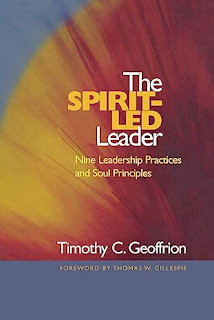Saying Yes to Life by Ruth Valerio - Book Review
Have we made the point of the Bible and God’s story with humanity to be so anthropomorphic that we’ve fallen in the trap of misinterpreting and misunderstanding the whole Gospel? Is the Gospel, the Good News, only destined to human beings? If your answer to the former question is Yes and to the later No, then this book, Saying Yes to Life, will come to you with a refreshing and surprising challenge and encouragement.
You are living and working in the world using nature’s resources on a daily basis but how much knowledge do you have about our natural world? Get ready to be educated on nature with this book!
Could it be possible that the whole point of salvation is not the salvation of man alone in order to escape the earth and move to a permanent home in heaven but that it is about the restoration of the whole cosmos, the universe? Ruth Valerio has answer Yes to this question and has carefully and somewhat bluntly shown that there is more to life than human beings and that the acceptance of this premise is the key to understanding our role in the universe and ultimately our contribution to not only preserving God’s creation but more interestingly in being co-creators with Him.
In Saying Yes to Life, the author shows that all the wisdom of God can be learned by observing nature, by sometimes withdrawing from our frantic world for a while and considering and allowing ourselves to be amazed by the beauties that surrounds us. This realization, or rather eyes-opening exercise will cause us to live with deep appreciation and gratitude towards everything and will also cause us to care for our neighbors – and these do not only mean humans.
Based on Genesis 1, the book start with a surprising and shocking comparison between the Bible narrative of creation with other genesis stories from other cultures that existed around the time the Bible was written. One is taken into a surreal conflict among the gods and is shown that mankind only appear just as a slave to the gods. The book shows a sharp contrast with the Biblical narrative which starts with a loving God, who creates out of love and who shares his creation generously and who invites mankind to continue the creation work with Him.
As God creates, from Day 1 to Day 6, He validates His own work saying that it is good. As He concludes the creation, He says that it is very good. Ruth calls us to consider what would be our reaction if our masterpiece art was destroyed…. The world is also God's masterpiece and is therfore jealous for it.
The main idea of the book is that as people made in the image of God, we are entrusted to look after the creation; to share in God’s love and ingenuity in making a difference for good.
The author conclusions by urging us to live intentionally, with the environment in mind. Even our eating should be thought through and adjusted as necessary to ensure that we are not contributing to harming the planet.
Quoting Norman Wirzba in regard to food, our attitude should be to receive it with gratitude and share it with generosity. Gratitude because behind every meal, there is a long chain of people, the weather, equipment, soil, nutrients, fire, gas, transport means etc... And generosity because there are many people lacking food while in other parts of the world with abandance people are actually throwing food away. So we should all live generously and help the needy.
A Creation community – Richard Bouckham reminds us that we are all connected weather we know it or not, accept it or not; we are all part of a global creation community and this requires us to play our part responsibly.
Let’s follow Jesus as we take care of His creation.





https://www.amazon.co.uk/dp/0281083770/ref=cm_sw_r_cp_awdb_imm_A42WB7CZCV1TPZYJZM6C
ReplyDelete